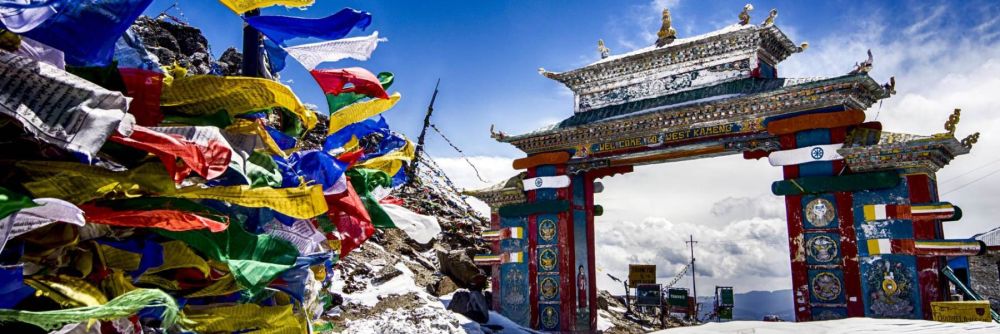

Tawang, a picturesque district in the northwestern part of Arunachal Pradesh, India, is home to the iconic Tawang Monastery, which is the largest monastery in India and the second largest in the world after the Potala Palace in Tibet. The area is known for its stunning landscapes, rich cultural heritage, and historical significance.
The history of tourism in Tawang is relatively recent, primarily because of its geographical isolation and strategic sensitivity. Being close to the Indo-China border, access to Tawang was heavily regulated. It wasn't until the late 20th century that tourism slowly started opening up in this region, with the government and local communities recognizing the potential for cultural and nature-based tourism.
In the 1990s, the Government of Arunachal Pradesh began to promote tourism in Tawang as part of its developmental agenda. Infrastructure development was undertaken to improve connectivity, accommodation, and tourist facilities. However, to preserve the ecological and cultural integrity of the region, tourism has been developed with a focus on sustainability. This involves regulations on the number of visitors and strict permits for entry into the area to avoid over-tourism.
The 21st century has seen a noticeable increase in tourists to Tawang, intrigued by its remoteness, Buddhist culture, and virgin landscapes. The region has become particularly popular among bike riders and adventure seekers looking to traverse the challenging mountainous terrain. The famous Tawang Festival, which showcases the cultural richness of the area, has also become a significant draw for tourists.
While tourism in Tawang has grown, it faces challenges such as limited accessibility, harsh weather conditions, and infrastructural constraints. The limited window of travel season primarily restricted to the summer months further challenges the sustainable growth in tourism. Yet, these very factors have preserved Tawang's charm and helped in maintaining its pristine environment.
Cultural Homestays have emerged as a significant trend in recent years. They offer tourists a chance to stay with local families, experience authentic Monpa culture, and enjoy local cuisine. This provides a more immersive experience and is a step towards responsible tourism by benefitting the local economy directly.
Another trend is the rising popularity of ecotourism. Visitors are more interested in exploring Tawang's natural beauty in a way that promotes conservation and respect for the environment. Trekking, bird watching, and visits to the high-altitude lakes are becoming increasingly favored activities among tourists.
Undoubtedly, Tawang's tourism has come a long way from its days of obscurity to becoming one of the sought-after travel destinations in Northeast India. As visitors continue to seek unique experiences, Tawang keeps evolving its tourism offerings while aiming to protect its natural and cultural assets for future generations.